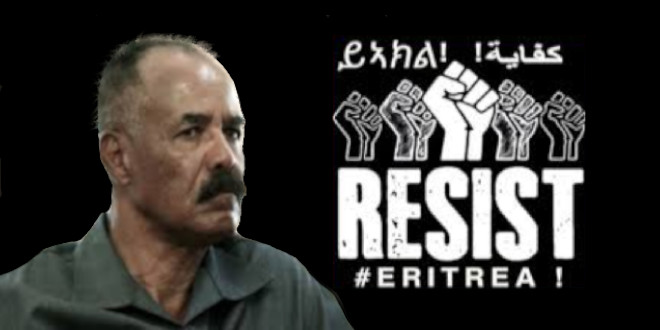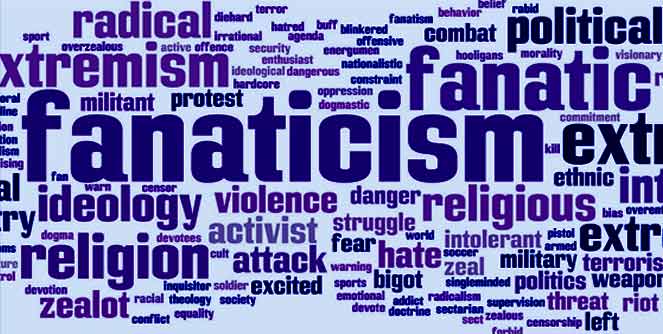Beyond Isaias, Beyond Yiakl!

For many years the international community has repeatedly condemned the PFDJ regime for continuing to commit systematic, widespread and gross human rights violations against his people. Our Eritrean intellectuals including previous supporters of the regime have realized that Isaias is a paranoid, narcissistic, power-hungry, and vain leader who would not accept any type of reforms whatsoever and that must fall.
While there is a sense of frustration with the historical opposition groups failing to achieve any significant breakthrough towards bringing change, we now see an increased number of organized civil rights movements such as ‘#Yiakl’ and others dominating the social media outlets. Their efforts are commendable for raising awareness, mobilizing grassroots, and calling for an end to the repressive regime in Eritrea.
I would like to stress here that the vast majority of sections of our society in Akhria, Keren , Massawa, Aqurdat, and Senafe who had said enough, ‘Kifaya’ , to the oppressive regime decades ago, are exhilarated to see the rest of our people in ‘Highland’ are catching up. As a ‘Lowlanders’, I am much more optimistic than ever before about the imminent fall of Isaias’ regime, that the ‘Highlanders’ have finally joined the ‘Lowlanders’ in monumental numbers. Having said that, I remain deeply suspicious of any future change that is brought by ‘Highlanders.’ I believe that the change, as I see it, would only replace the current tyranny of the dictator Isaias, by a tyranny of the majority of ‘Highlanders.’
The ‘Lowlanders’ have been raising issues that need urgent national consensus before the fall of the PFDJ regime. These issues have been repeatedly dismissed by the ‘Highlanders’ openly in social media and they labelled it as ‘unpatriotic’, ‘separatist’, ‘Islamist’, so on so forth. The issues which I will highlight below, are not being addressed by what the ‘Highlanders’ ultimately hope to achieve: changing the current regime, followed by creating a new transitional government, publishing a draft constitution, holding a referendum, conducting an elections , and handing over power continuing a majority rule. As a ‘Lowlander’ I strongly believe that if the PFDJ falls in the next two years, hopefully sooner, the majority in power would then be the ‘Highlanders’ who would end up imposing inequitable laws and policies. If this were only what the ‘Highlanders’ are aiming to achieve without tackling key national issues that the unity of our nation depends on, then the backlash from ‘Lowlanders’ would be colossal, and they would have no choice but to fight fiercely together to demand their rights. This would inevitably lead to civil war, humanitarian crises, repression and risk of state failure. Let’s not wait for another decade or two to grasp this conundrum.
I invite all the ‘Highlanders’ intellectuals and activists to have a deep understanding of the meaning of Eritrea which is a diverse country with ethnic, regional and religious divisions, and with no rule of law or democracy. If we want to achieve a peaceful democratic transition, and a lasting stability, peace and economic prosperity, we must get together now and address issues of rights and freedoms from all Eritrean perspectives, ‘Lowlanders’ and ‘Highlanders’.
The ‘Lowlanders’, a term I use here refers to all people in Eritrea that do not refer themselves as Tigrinian, will keep flagging up the following key questions that must be addressed by all political and civil organizations:
- PFDJ regime has confiscated vast swathes of land and properties from ‘Lowlanders’ and redistributed them mainly to ‘Highlanders’ and supporters of the regime. Over the last three decades the land ownership of ‘Lowlanders’ has decreased massively to its lowest level. We know that land and property means wealth and power. If this act of injustice by the PFDJ is not rectified, it would exacerbate current power imbalances within the whole Eritrean society.My question is: Are we prepared to rectify these injustices by returning lands and property to their original owners and compensate them for the loss?
- All Eritreans have rights to organize themselves into groups, be it on civil, religion or ethnic grounds. They are entitled to determine their rights of what religion to follow and which language to use to access public services provided by local and central governments. They are entitled to determine what they want to see as their national and local languages without being accused of all sorts of labels.Are we prepared to accept Arabic to be the national language that ‘Lowlanders’ want to to continue to be their working language that they want to use to access public services provided by local and central governments?
- We all must accept that in a liberal democracy where there’s established rule of law, the minorities’ rights must be safeguarded.For example: the Afar in Dankalia have always enjoyed some kind of self-rule using their own traditional laws in their protected land until the PFDJ confiscated their land and property and eroded their ways of life. The same story applies to Kunama and to some extent to all other minority groups in Eritrea.
Are we prepared to establish a genuinely decentralized system where democratic majority rule does not end up oppressing minority rights? Are we prepared to establish a system where self-rule (at a regional level) and shared rule (at a national level) a core principle of our governance?
I encourage all to pause, think and plan beyond the fall of Isaias and beyond ‘#Yiakl’.


Awate Forum